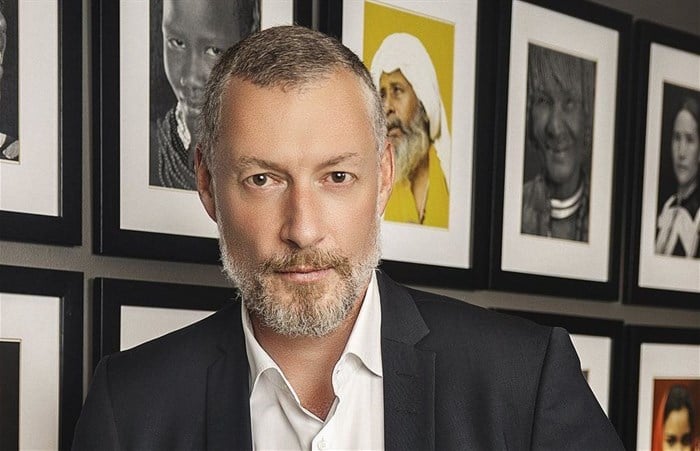
Leaders wield influence that extends beyond their titles. They are the architects of the organisational culture, responsible for setting the tone that shapes the workplace environment. A leader's actions and behaviours become a blueprint for the entire team to follow. By embodying the desired traits and upholding the company’s values themselves, leaders provide a living example of the principles they seek to instil.
Conversely, a leader who fails to embody the values and principles that underpin a team's purpose and identity creates a toxic workplace culture. If a disconnect exists between the leader's actions and the company's values, employees become disillusioned, feeling that what they are expected to uphold is inconsequential.
This inconsistency fosters an environment of hypocrisy and erodes trust in leadership. Employees who witness a leader that does not align with the values might question the authenticity of the organisation's commitment to those values. Consequently, this dissonance corrodes the sense of shared purpose and mutual respect.
Ultimately, a leader's failure to live up to the company's values sows the seeds of toxicity, undermines unity, erodes morale, and impedes both individual and collective success.
A prime example of how leadership affects culture and subsequently performance is Twitter (now X). The platform's culture revolved around the principles of openness, freedom of expression, and the power of communication. With a diverse and global workforce, Twitter's culture embraced different perspectives and encouraged employees to voice their opinions. The platform's user-centric nature was reflected in its internal ethos, emphasising direct communication, quick decision-making, and the ability to adapt rapidly.
During his brief stint as CEO of Twitter, spanning from his acquisition of the company in October 2022 until June 2023, Elon Musk introduced several changes with dire consequences. Almost immediately after assuming the leadership role, Musk drastically downsized Twitter's global workforce, nearly halving its size. This move led to a wave of resignations, and those who dared to voice dissent were met with swift reprisals, including dismissals or public ridicule.
An internal memo issued by Musk and subsequently circulated widely on the internet presented an uncompromising choice: embrace a "hardcore culture" of “long hours at high intensity” or exit with a three-month severance package. Musk's autocratic and impulsive leadership style proved to be detrimental, unravelling the very essence of Twitter. The company, once a champion of free expression, open dialogue, and innovation, swiftly became one characterised by apprehension, uncertainty, and apathy. The financial ramifications have been substantial, with losses extending into the billions.
A toxic workplace culture can have profound effects on a company's bottom line. The corrosive atmosphere created by negativity erodes employee morale, engagement, and productivity. Employees working in a toxic environment are likely to experience increased stress, burnout, and a decline in their overall well-being. Consequently, absenteeism and turnover rates rise, leading to increased costs associated with recruiting and onboarding new employees.
Additionally, the toxic culture stifles creativity and innovation, hindering the ability to adapt to changing market dynamics. Collaboration and teamwork suffer, impacting the quality of products and services delivered to customers. Overall, a toxic workplace culture creates a vicious cycle where operational inefficiencies, decreased employee performance, and reputational damage collectively undermine the company's financial health and long-term success.
On the other side of the spectrum is Microsoft, the former heavyweight of the global business industry. There was a feeling that the company had become too insular and resistant to change under Steve Ballmer's guidance. At the time, Microsoft's culture, which was deeply rooted in its legacy as a software giant, leaned towards a "know-it-all" attitude, where expertise was valued, but at times hindered the openness to new ideas and approaches. The company also had a reputation for a highly competitive internal environment, leading to silos and a lack of collaboration across divisions.
With Satya Nadella's appointment as CEO in 2014, this culture began to shift. He ushered in a transformation that revitalised the company's strategy and identity. Nadella emphasised empathy, psychological safety, and a growth mindset as core cultural pillars, fostering an environment that encouraged innovation and inclusivity, where employees felt safe to voice opinions and concerns. His "mobile-first, cloud-first" strategy propelled Microsoft's expansion into cloud computing and AI technologies, which not only repositioned Microsoft as a major player in the industry but also reinvigorated the company's culture.
Nadella's approach of valuing experimentation, learning from failures, and embracing change set a new tone of adaptability. The result was a culture that prized agility, customer-centricity, and cross-functional collaboration. The transformation ignited a renewed sense of purpose within Microsoft, leading to innovative products, increased employee engagement, and significant growth.
It cannot be ignored that culture plays a pivotal part in a company’s success, and at the heart of engaging cultures lies a sense of belonging. Nadella knew how to foster this sense of unity, and over the course of 18 years, I have worked with many leaders who also understood that how things are done is as important as what is being done. And their organisations have flourished.
Those who focus on performance only, neglecting to consider what and who it takes to deliver those results, falter. I firmly believe that at the heart of leadership lies the passion and ability to create a healthy environment that fosters a sense of belonging, so all team members feel like they want to be there, every day, bringing their all.
